Until the 31st of December 2015, France consisted of 27 administrative regions. A major administrative reorganization of the country was voted upon and now France is divided into 18 regions. Thirteen of these regions are in metropolitan France, including the island of Corsica, and the rest are overseas.
This reduction was done by merging certain regions together to create “super-regions.” Some of these new super-regions combine the names of the old regions while others are new like Grand Est and Occitanie.
Of the 13 metropolitan regions, 9 are in the north of France, and 3 are in the south. Each region is divided into different departments, and each department has territorial subdivisions called “cantons.” All regions have their own regional council, presided over by a regional president.
Character, culture, and climate differ from one region to another. However, all are—or include—popular tourist destinations, making France the most visited country in the world.
Things you'll find in this article
- 18 Regions Of France List (Map + Attractions)
- Regions of France Map
- Regions of France List
- The French Regions in Metropolitan France
- 1. Auvergne-Rhône-Alpes (Auvergne-Rhône-Alps Region)
- 2. Bourgogne-Franche-Comté (Burgundy-Free County Region)
- 3. Bretagne (Brittany Region)
- 4. Centre-Val de Loire (Centre-Loire Valley Region)
- 5. Corse (Corsica Region)
- 6. Grand Est (Great East Region)
- 7. Hauts-de-France (Upper France Region)
- 8. Île-de-France (Island of France Region)
- 9. Normandie (Normandy Region)
- 10. Nouvelle-Aquitaine (New Aquitaine Region)
- 11. Occitanie (Occitania Region)
- 12. Pays de la Loire (Loire Countries Region)
- 13. Provence-Alpes-Côte d’Azur (Provence-Alps-Azure Coast Region)
- The Overseas French Regions
18 Regions Of France List (Map + Attractions)
Read on to learn more about the 18 administrative regions of France, the popular tourist attractions in each, and what they are known for.
Regions of France Map

Regions of France List
| Regions | Capital | Area (km2) | Former Regions |
| Auvergne-Rhône-Alpes (Auvergne-Rhône-Alps) | Lyon | 69,711 | Auvergne Rhône-Alpes |
| Bourgogne-Franche-Comté (Burgundy-Free County) | Dijon | 47,784 | Burgundy Franche-Comté |
| Bretagne (Brittany) | Rennes | 27,208 | unchanged |
| Centre-Val de Loire[4] (Centre-Loire Valley) | Orléans | 39,151 | Centre |
| Corse (Corsica) | Ajaccio | 8,680 | unchanged |
| Grand Est (Great East) | Strasbourg | 57,441 | Alsace Champagne-Ardenne Lorraine |
| Hauts-de-France (Upper France) | Lille | 31,806 | Nord-Pas-de-Calais Picardy |
| Île-de-France (Island of France) | Paris | 12,011 | unchanged |
| Normandie (Normandy) | Rouen | 29,907 | Upper Normandy Lower Normandy |
| Nouvelle-Aquitaine (New Aquitaine) | Bordeaux | 84,036 | Aquitaine Limousin Poitou-Charentes |
| Occitanie(Occitania) | Toulouse | 72,724 | Languedoc-Roussillon Midi-Pyrénées |
| Pays de la Loire (Loire Countries) | Nantes | 32,082 | unchanged |
| Provence-Alpes-Côte d’Azur (Provence-Alps-Azure Coast) | Marseille | 31,400 | unchanged |
| Guadeloupe | Basse-Terre | 1,628 | unchanged |
| Guyane (French Guiana) | Cayenne | 83,534 | unchanged |
| La Réunion (Réunion) | Saint-Denis | 2,504 | unchanged |
| Martinique | Fort-de-France | 1,128 | unchanged |
| Mayotte | Mamoudzou | 374 | unchanged |
The French Regions in Metropolitan France
1. Auvergne-Rhône-Alpes (Auvergne-Rhône-Alps Region)
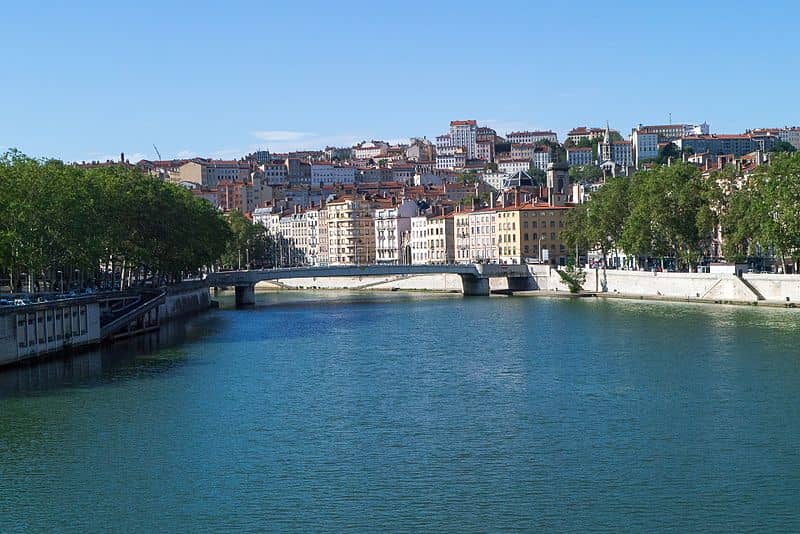
Auvergne-Rhône-Alpes is one of the richest French regions, located in the southeast of France. It has 13 departments: Ain, Allier, Ardèche, Cantal, Drôme, Isère, Loire, Haute-Loire, Lyon, Puy-de-Dôme, Rhône, Savoye, and Haute-Savoye. The administrative capital is Lyon, France’s third largest city.
Auvergne-Rhône-Alpes is known for its Alpine ski areas. With 173 downhill or cross-country ski resorts, it is the world’s largest ski area.
However, this region is far more than just the French Alps as it stretches from Lake Geneva to the Cevennes and Provence. It is also home to 3 of the 5 largest lakes in France, 9 regional natural parks, 2 national natural parks, and 49 natural reserves.
Auvergne-Rhône-Alpes boasts of 10 UNESCO sites as well as 20 cities of Art and History, and 22 of the most beautiful villages in France.
Popular Tourist Attractions:
- Lyon
- Saint Etienne
- Grenoble
- Clermont-Ferrand
- Annecy and its lake
- Puy-en-Velay
- famous ski resorts in the French Alps like Chamonix, Mérivel, and Val d’Isère
2. Bourgogne-Franche-Comté (Burgundy-Free County Region)
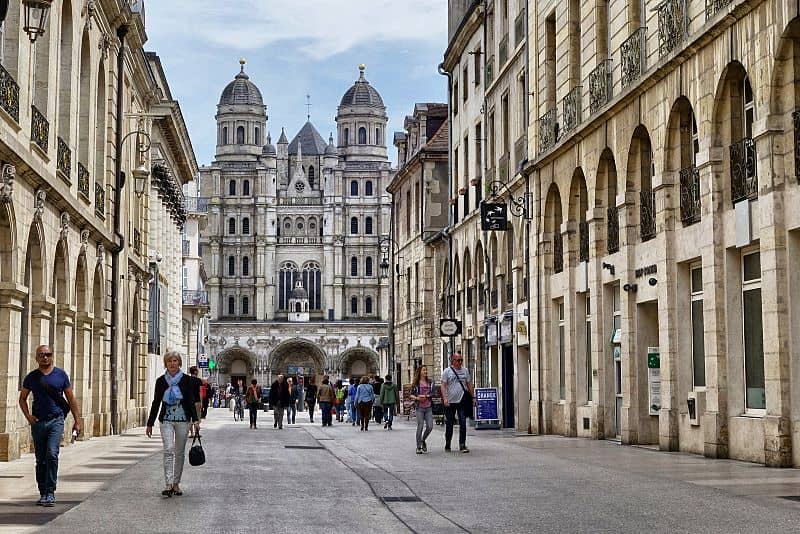
Bourgogne-Franche-Comté is a region in east-central France. It has 8 departments, namely; Côte-d’Or, Doubs, Jura, Nièvre, Haute-Saône, Saône-et-Loire, Yonne, and Territoire de Belfort. Its capital is Besançon. The other main city of Bourgogne-Franche-Comté is Dijon, which is famous for its mustard.
This region is known for its rich history and diverse scenery, spanning across the rolling Burgundy wine country in the west, to the Jura mountains and Swiss border to the east. It also regularly hosts classical music and jazz festivals.
Bourgogne-Franche-Comté produces superb wines, the famous Luxeuil ham, the Brési smoked beed, and sausages from Montbéliard and Morteau.
It also boasts of scores of Romanesque churches and castles, and circus amphitheaters-shaped glacial valleys called cirques.
Popular Tourist Destinations:
- Dijon
- Royal Saltworks at Arc-et-Senans
- Notre Dame du Haut in Ronchamp
- Cluny Abbey
- villages in the Burgundy wine region
- Natural Park of Ballons des Vosges
3. Bretagne (Brittany Region)

Bretagne, the farthest west of the regions of France, is a peninsular region bordered by the English Channel to the north and the Bay of Biscay to the south. It has 4 departments, namely; Côtes-d’Armor, Finistère, Ille-et-Vilaine, and Morbihan.
Bretagne is a multi-faceted region with a distinct identity as it shares its Celtic heritage with Cornwall and Wales. Their unique Celtic past and culture are evident in the capital city of Rennes.
Popular Tourist Destinations:
- Rennes
- Saint Maló
- Emerald Coast
- Pink Granite Coast
- Gulf of Morbihan
- the historic town of Quimper
- Belle-Île-en-Mer
4. Centre-Val de Loire (Centre-Loire Valley Region)

The Centre-Val de Loire region in the center of northern France is split through the middle by the Loire Valley. Its 6 departments are Cher, Eure-et-Loir Indre, Indre-et-Loire, Loir-et-Cher, and Loiret. The administrative capital is Orléans, the region’s second largest city.
This region is noted for being farmland and palatial châteaux. It is also home to a world-famous UNESCO World Heritage Site, Loire Valley.
A primary wine-producing region, Centre-Val de Loire produces Sancerre and Pouilly-Fumé, some of the world’s most famous white wines.
Popular Tourist Destinations:
- Anjou
- Blois
- Chinon
- Tours
- Loire Valley castles
- Chartres and Bourges Cathedrals
5. Corse (Corsica Region)
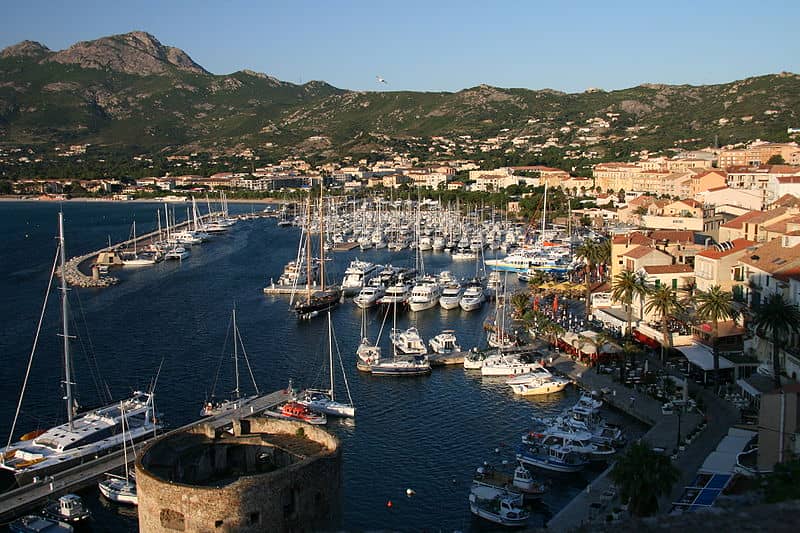
Corse is the fourth biggest island in the Mediterranean Sea. It’s an administrative region in France that lies southeast of the French mainland. Its nearest landmass is the Italian island of Sardinia. The region’s two departments are Haute-Corse and Corse-du-Sud.
Corsica is famous for Napoleon Bonaparte, who was born in the regional capital Ajaccio in 1769. Today, Maison Bonaparte, his ancestral home, is a very important tourist destination and museum on the island.
Popular Tourist Destinations:
- beaches
- Bonifacio
- Calanques de Piana
- Calvi citadel
- Maison Bonaparte
- Porto Vecchio
6. Grand Est (Great East Region)
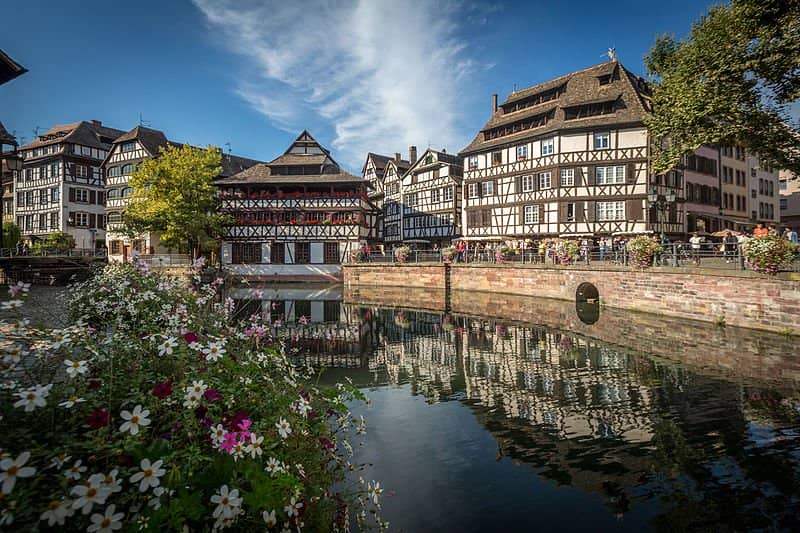
Grand Est, an administrative region in northeastern France, is famous for producing champagne wines, thanks to its semi-continental climate and chalk soil which are ideal for champagne vineyards.
The region comprises of 10 departments: Ardennes, Aube, Bas-Rhin, Marne, Haute-Marne, Haut-Rhin, Meurthe-et-Moselle, Meuse, Moselle, and Vosges. Its capital and largest city is Strasbourg.
Grand Est is also noted for its architectural monuments from the Roman Empire to the early 21st century.
Popular Tourist Destinations:
- Strasbourg
- Alsace Wine Route
- champagne vineyards
- Château du Haut-Kœnigsbourg
- Reims Cathedral
- Verdun and other WW1 historical sites
7. Hauts-de-France (Upper France Region)
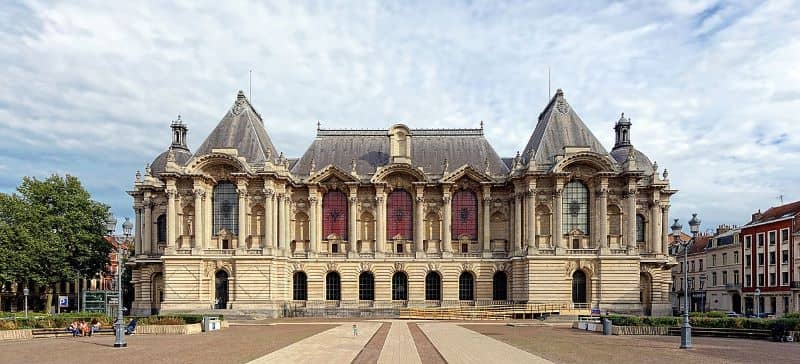
The northernmost region of France, Hauts-de-France, was formed from a union of Nord-Pas-de-Calais and Picardy. Its 5 administrative departments are Aisne, Nord, Oise, Pas-de-Calais, and Somme. Its capital is Lille, nicknamed the “Capital of Flanders” as its surroundings are part of the historical region of Romance Flanders.
Thanks to its Flemish influence, Hauts-de-France is famous for Flemish beer. The region is also known for having the most Gothic cathedrals per square meter in the world.
Popular Tourist Destinations:
- Lille
- Amiens Cathedral
- Domaine de Chantilly
- Dunkirk
- Le Touquet,
- the Somme Bay and WW1 battlefields.
8. Île-de-France (Island of France Region)
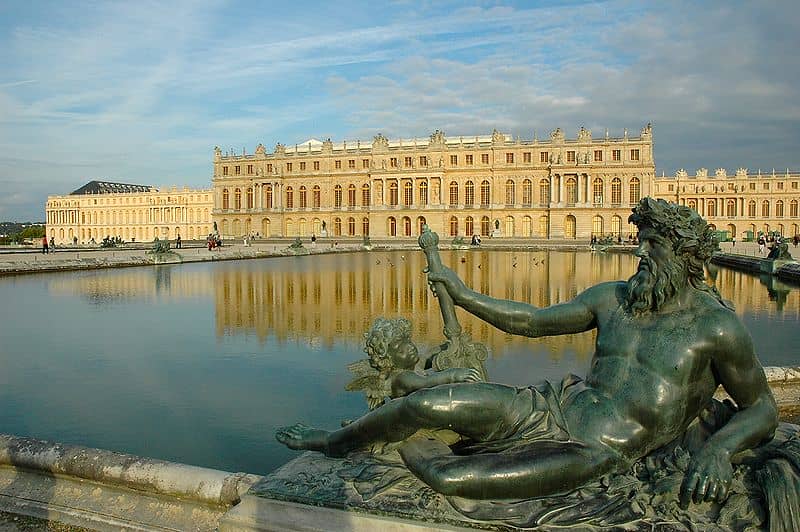
The Île-de-France region in northern France is perhaps the most visited, mainly because of the nation’s famed capital, Paris. It is also the wealthiest and the most populated.
Eight administrative departments form the Île-de-France region. They are Essonne, Hauts-de-Seine, Paris, Seine-Saint-Denis, Seine-et-Marne, Val-de-Marne, Val-d’Oise, and Yvelines. Its famous capital, Paris, bears the flag for this region.
Popular Tourist Destinations:
- Paris
- Versailles
- Château de Fontainebleau
- Château de Vincennes
- Disneyland Paris
- Provins medieval city
- Saint-Denis Basilica Cathedral
9. Normandie (Normandy Region)
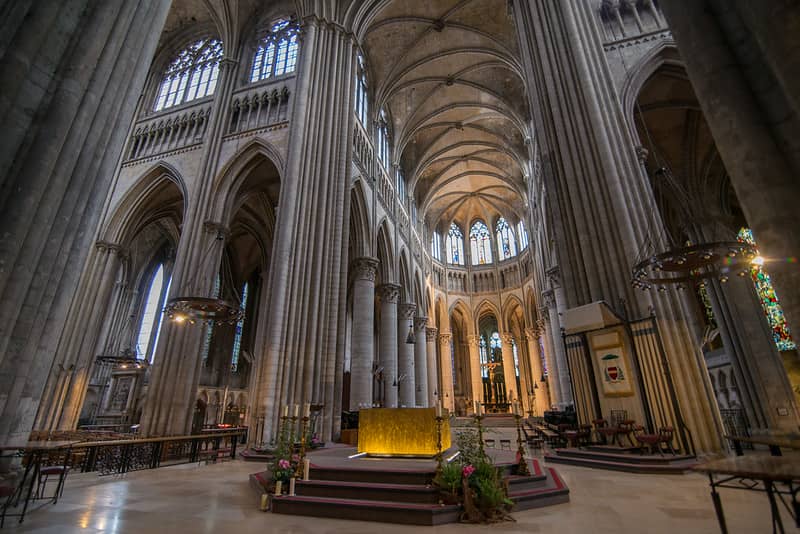
Normandie is the northwesternmost region of France made up of 5 administrative departments: Calvados, Eure, Manche, Orne, and Seine-Maritime. Its capital is Rouen, where Joan of Arc was burned alive in 1431.
Normandy is the chief producer of mussels, scallops, oysters, and herrings in France. It is also famous for producing cheeses, apple cider, and apple brandy.
Popular Tourist Destinations:
- the Abbey at Mont St Michel
- medieval Bayeux
- Honfleur harbor
- the Seine Valley
- Monet’s Gardens in Giverny
10. Nouvelle-Aquitaine (New Aquitaine Region)
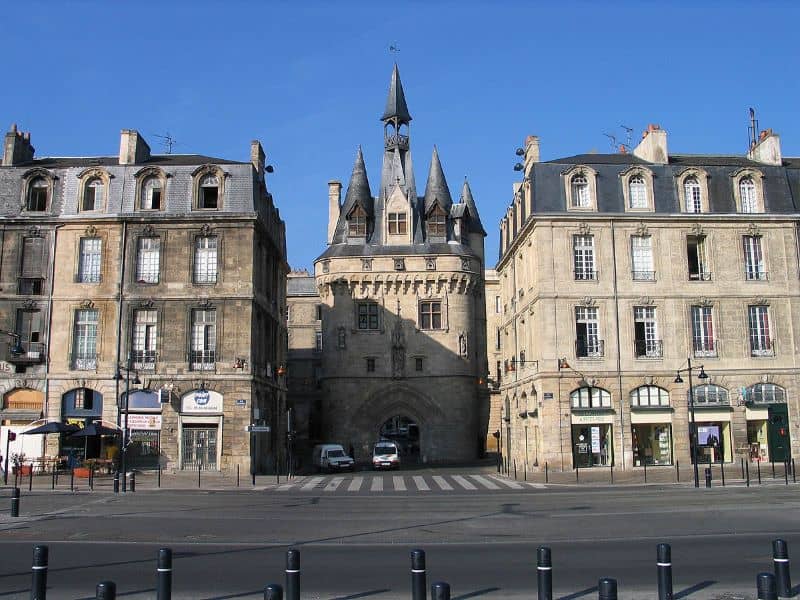
The largest administrative region in France, Nouvelle-Aquitaine spans the west and southwest of the country. It is divided into 12 deparments: Charente, Charente-Maritime, Corrèze, Creuse, Dordogne, Gironde, Landes, Lot-et-Garonne, Pyrénées-Atlantiques, Deux-Sèvres, Vienne, and Haute-Vienne. Its capital and largest city is Bordeaux.
Nouvelle-Aquitaine has the most UNESCO World Heritage sites in France with a total of 15. It is a popular seaside destination with world-class resorts in Biarritz, Arcachon, and Royan.
Popular Tourist Destinations:
- Bordeaux
- the Cité du Vin
- Dordogne
- Dune de Pilat
- Lascaux prehistoric caves
11. Occitanie (Occitania Region)
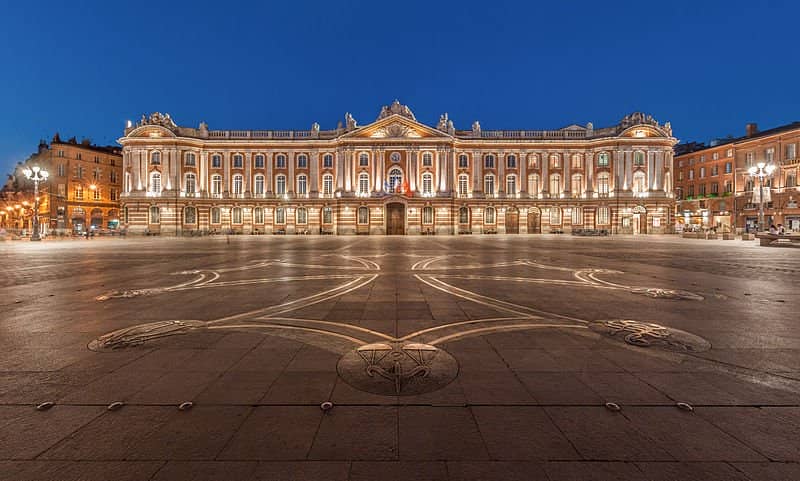
The southernmost administrative region of continental France excluding Corsica, Occitanie is made up of 13 departments: Ariège, Aude, Aveyron, Gard, Gers, Haute-Garonne, Hautes-Pyrénées, Hérault, Lot, Lozère, Pyrénées-Orientales, Tarn, and Tarn-et-Garonne. Its capital, Toulouse, is the spiritual home of French rugby and is nicknamed la ville rose or “the pink city,” thanks to its warm brick and terracotta architecture.
Occitanie is noted for its medieval castles, villages, market towns, and colorful food and wines. It is a popular destination for skiing, golf, and rugby.
Popular Tourist Destinations:
- the Camargue
- Rocamadour
- Nîmes
- Pont du Gard
- the Cévennes National Park
- Canal de Midi
- Toulouse
- the Pyrénées
12. Pays de la Loire (Loire Countries Region)
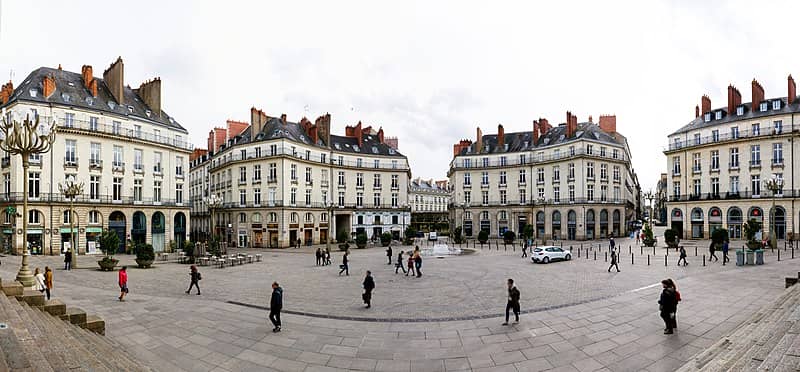
Pays de la Loire, an administrative region in western France, is also known as the “valley of the kings.” This is thanks to its royal past and its legacy of abbeys, châteaux, and manor houses that draw 2.3 million tourists annually.
The Pays de la Loire region is comprised of 5 departments, namely; Loire-Atlantique, Maine-et-Loire, Mayenne, Sarthe, and Vendée. Its capital and largest city, Nantes, is where the famous science-fiction writer, Jules Verne, was born in 1828.
The region is the renowned producer of the famous Fleurs de Sel or salt flowers from Guérande.
Popular Tourist Destinations:
- 24 hours of Le Mans
- Angers
- Les Machines de l’Ile in Nantes
- Puy du Fou
- Fontevraud Abbey
13. Provence-Alpes-Côte d’Azur (Provence-Alps-Azure Coast Region)
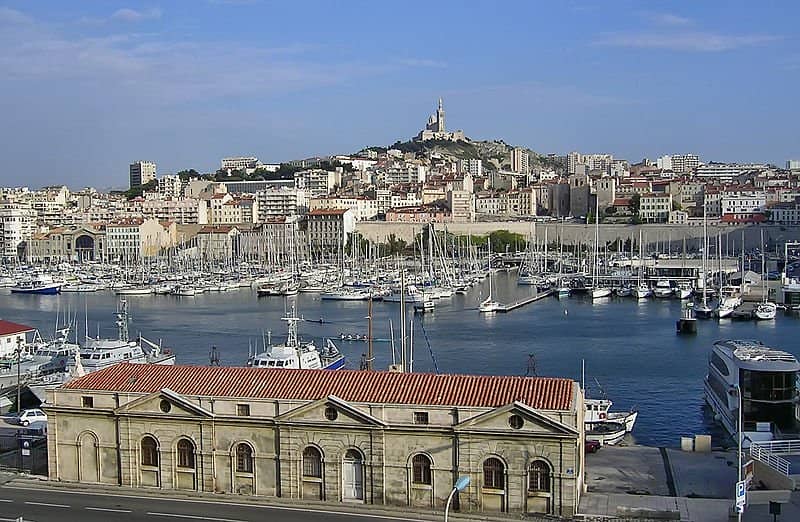
Also known as Région Sud, Provence-Alpes-Côte d’Azur is the far southeastern region on the mainland France. It is divided into 6 departments: Alpes-de-Haute-Provence, Alpes-Maritimes, Bouches-du-Rhône, Hautes-Alpes, Var, and Vaucluse. The region’s capital and largest city is Marseille.
Provence-Alps-Azure Cost is home to the Gorges du Verdon, Europe’s largest canyon. The region is also known for its stunning orchards and vineyards, seaside resorts, and Romanesque and medieval architecture.
Popular Tourist Destinations:
- Avignon
- Marseille
- Nice, St. Tropez, Antibes, and Cannes in the French Riviera
- Aix-en-Provence
The Overseas French Regions
14. Guyane (French Guiana)
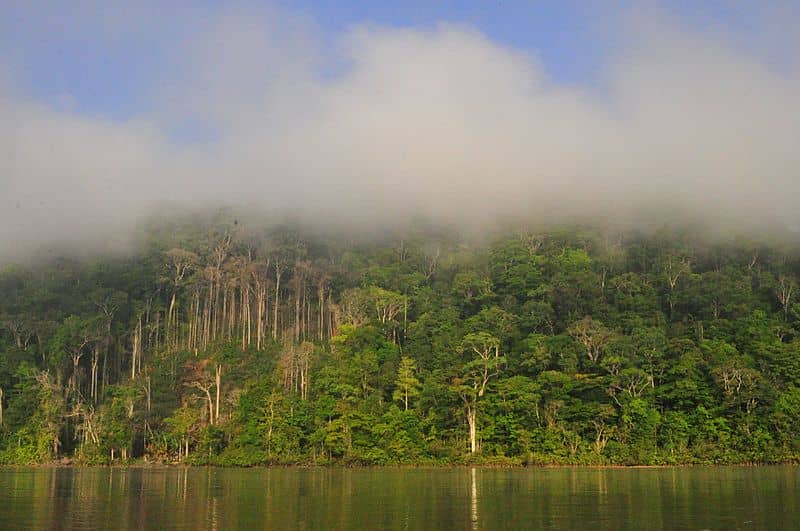
One of the 5 overseas regions of France, French Guiana or Guyane is located on the northern Atlantic coast of South America. Its neighbors are Suriname and Brazil, and the administrative capital is Cayenne.
Guyane’s most popular tourist destination—the Îles du Salut (Salvation Islands) archipelago—includes the infamous Devil’s Island, where Henri Charriere and political prisoners like Captain Alfred Dreyfus were incarcerated.
Popular Tourist Destinations:
- Îles du Salut
- Îlet la Mère
- Plages les Hattes (Hattes Beach)
- Centre Spatial Guyanais (Guiana Space Center)
- Tresor Nature Reserve
15. Guadeloupe

Guadeloupe is a French overseas region situated in the Caribbean. The island is surrounded by Antigua and Barbuda, Montserrat, and Dominica. Its capital city is Basse-Terre.
Although the official language in Guadeloupe is French, Antillean Creole is also spoken. Its official currency is the euro.
Guadeloupe is best known for its islands, beaches, scenery, and rum. The famous Guadeloupe rum—Rhum Agricole—is made from sugar cane juice.
Popular Tourist Destinations:
- La Pointe des Châteaux
- Plage de Grande Anse
- Sainte-Anne Beach
- Jacques Cousteau’s Underwater Reserve
- Grand Cul-de-Sac Marin Natural Reserve
- Terre-de-Bas Island
- Marie-Galante Island (“the Big Pancake”)
- La Grande Soufrière
- Guadeloupe National Park
16. La Réunion (Réunion)

Formerly known as île Bourbon, La Réunion is an overseas region of France in East Africa. It is an island in the Indian Ocean between Madagascar and Mauritius. Its administrative capital is Saint-Denis.
Réunion is a volcanic island covered in huge craters—so huge people literally live inside them!
The island is home to Piton de la Fournaise (“Peak of the Furnace”), one of the most active volcanoes on earth, with more than 150 recorded eruptions to boot.
Popular Tourist Destinations:
- Saint-Denis
- Hell-Bourg, a gorgeous village on the Réunion mountains
- Lux Saint Gilles (currently the only five-star resort on the island)
- Piton des Neiges (“Snow Peak”)
17. Martinique
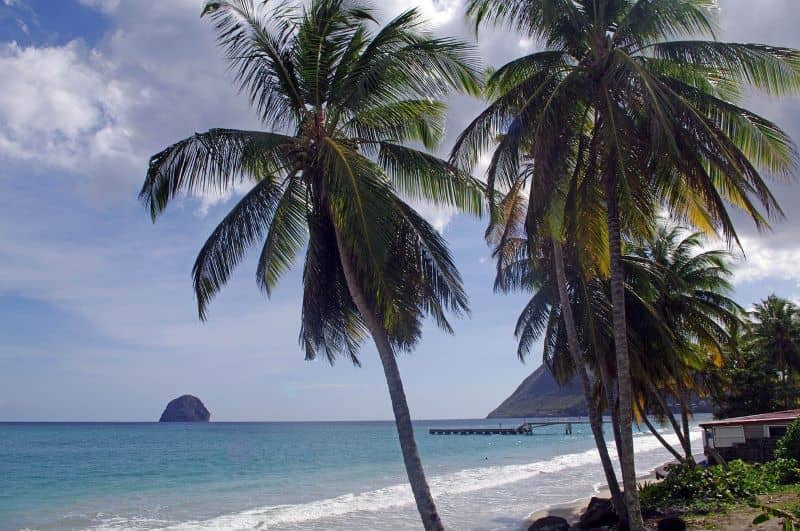
Martinique, an overseas region of France, is located at the southern end of the Caribbean and it is famous for its world-class beaches. The island is surrounded by the Dominican Republic, St. Lucia, Barbados, and Dominica. The region’s administrative capital is Fort-de-France, one of the major Caribbean cities.
Just like La Réunion, the island of Martinique is a volcanic island in origin. It is home to five volcanic peaks called Pitons du Carbet. Mount Pelée, another volcano on the island, is said to have claimed around 30,000 lives.
Martinique is the birthplace of Napoleon Bonaparte’s wife, Joséphine de Beauharnais.
Popular Tourist Destinations:
- Fort-de-France
- Chateau Dubuc
- Saint-Pierre
- Les Trois-Ilets
- Grand Anse d’Arlet
- Les Salines
18. Mayotte

Mayotte is located in the Indian Ocean off the coast of Southeast Africa, between Mozambique and Madagascar. This French overseas region is part of the Comoros archipelago. Its administrative capital is Mamoudzou.
Mayotte is famous for the world’s third-largest enclosed lagoon. The island also boasts of the deepest lagoon in the world and one that has a double-barrier reef.
Popular Tourist Destinations:
- Mamoudzou
- Lake Karihani
- N’Gouja Beach
- Dzaoudzi Village
- Bouéni Peninsula
- M’Tsamboro Island
- Mount Choungui

Hi, I’m Christine – a full-time traveler and career woman. Although I’m from the Philippines, my location independent career took me to over 40 countries and lived in 4 continents in the last 10 years, including France. A self-proclaimed Francophile, I love everything France.
